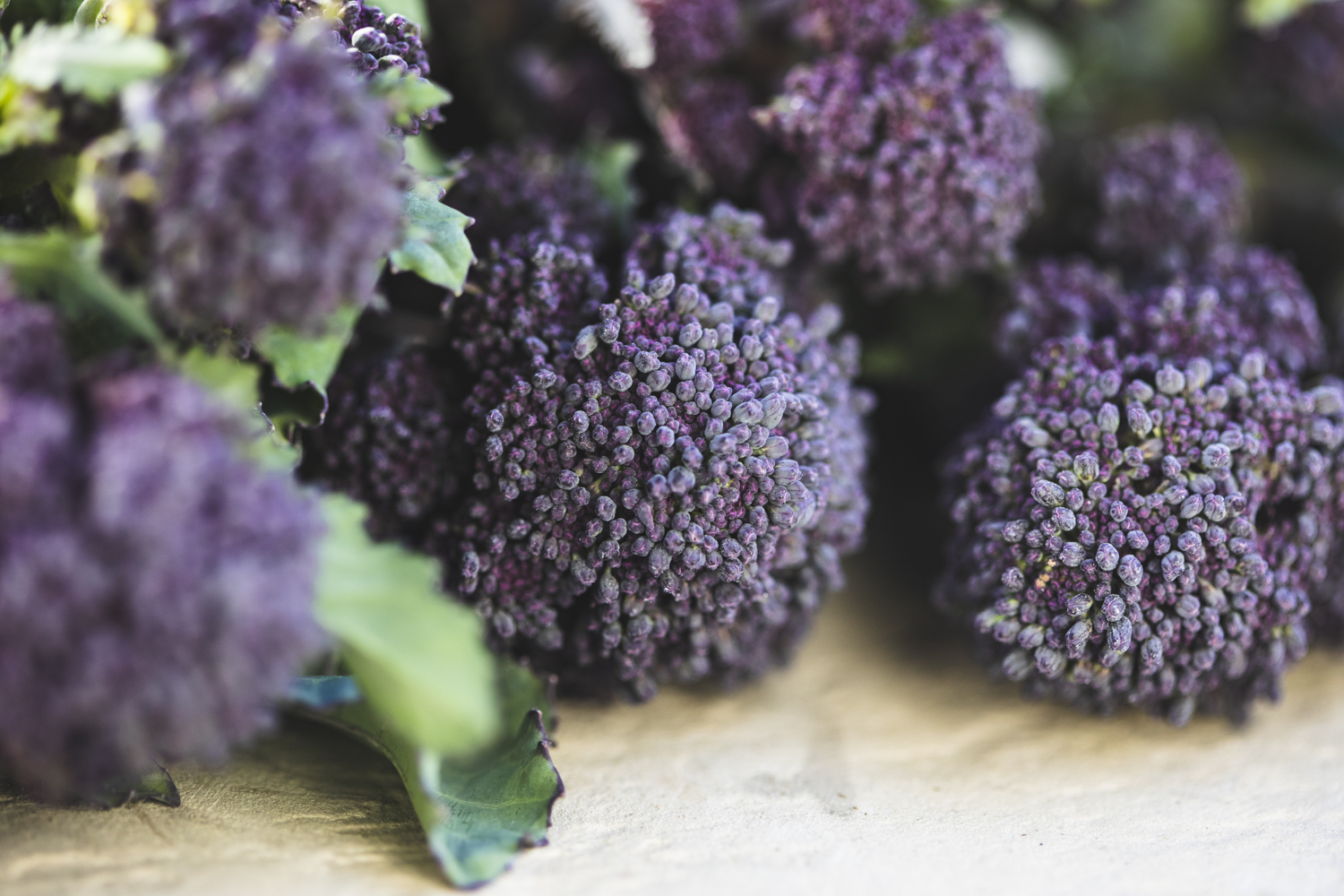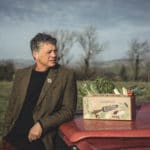If weather forecasts are correct, when you read this our fields will be covered in snow. The 15 degree temperature drop has been mercifully progressive, and accompanied by dry weather, allowing soft plants – accustomed to mild, wet autumn air – to harden, build stronger cell walls, and withstand the freeze better. But the exposed curds of cauliflower and flowering buds of purple sprouting broccoli (PSB) are still vulnerable, and we will be lucky not to lose some.
During our last pick of PSB before the big freeze, I wondered at the diversity within the Rudolph variety, one of the last open-pollinated (grown from seeds that result from natural pollination of the parent plant) crops we grow. Some stalks are fat, some thin, some tall, some squat, some precocious in flowering, some tight in the bud; a few will be lost to the frost, but most will survive and grow on after the thaw. Such diversity was common in my youth, before high-yielding, uniform F1 (first generation) hybrids swept across the industry, largely banishing the heirloom open-pollinated varieties to gardens, allotments, and a few stubborn seed savers.
Hybrids are produced, mostly by global seed companies, by inbreeding two parental lines until they are relatively uniform. When the two lines are crossed, the first ‘filial’ generation inherits one set of uniform genes from each parent, resulting in a highly uniform F1 generation which all ripen in sync. They have the additional benefit of hybrid vigour, leading to improved yields and often more succulent growth. I have a suspicion that such fast and soft growth tends to be less nutritious and flavoursome, but perhaps that’s the prejudice of an ageing Luddite.
It would be hard for a commercial grower to survive today’s prices and requirements for uniformity using the old locally bred, open-pollinated varieties – yet some intangible richness is lost with their diversity.
I would urge the gardeners amongst you to resist the eugenic rush for genetic uniformity, embrace diversity, and keep the open-pollinated varieties alive (outside of the frozen doomsday gene banks of the Svalbard Global Seed Vault). You can do this by supporting the largely local and small-scale seed growers who supply them. What gardener wants all their cabbages at the same time anyway? When the meteorite hits, it tends to be a freak from the fringe that displaces the dinosaurs. The stability of my lifetime has favoured specialism; the disruption facing my children’s will favour diversity.










May I put in a word for Garden Organic’s Heritage Seed Library?